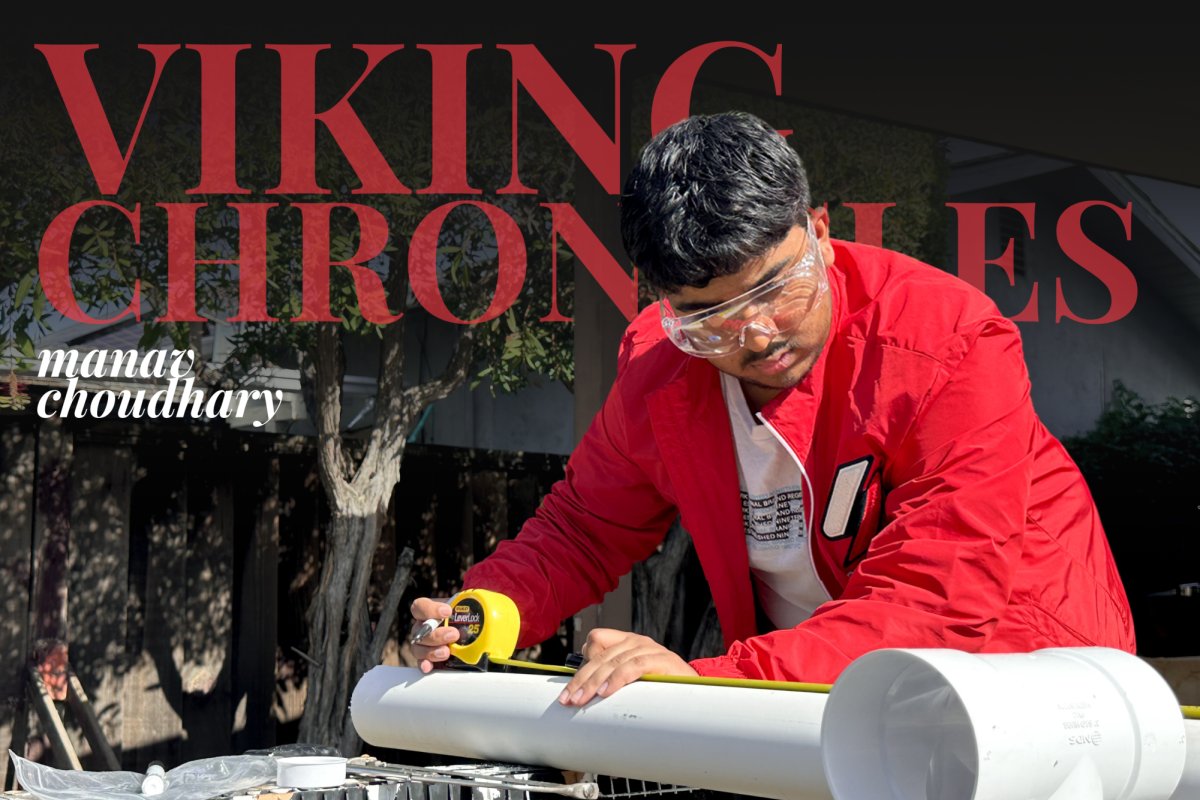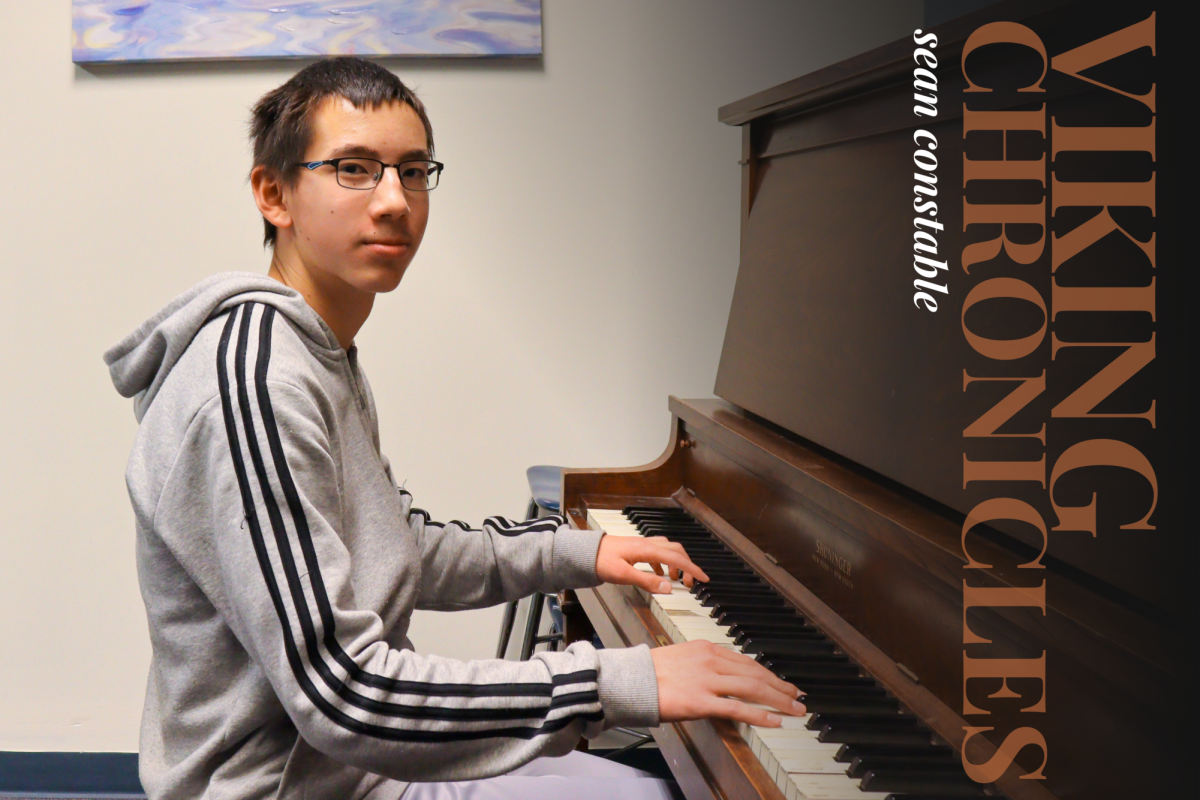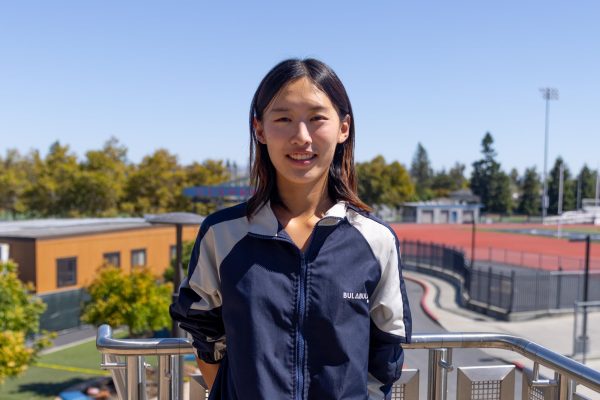Senior Aakash Ozarker chalks his hands as he readies himself for a deadlift. The bright lights of the college gymnasium strike his eyes, and he breathes in, then out. Muttering encouragement under his breath, he reaches down and raises a barbell loaded with weight plates off the ground. Ozarker is a powerlifter who has competed in many powerlifting competitions over the years, starting as a freshman. He hopes that one day Lynbrook will have its own powerlifting team, leaving behind a lasting legacy when he graduates.
“I got into the sport because I love the concept of powerlifting,” Ozarker said. “Coach Wright encouraged me a lot as well with tips and whatnot.”
Powerlifting competitions come down to three lifts: squats, bench presses and deadlifts. The goal is to lift the heaviest weight possible in three rounds, and the best valid attempt counts toward the final competition total. Each lift can take anywhere from 45 minutes to 90 minutes for all competitors to finish, so warming up properly is a crucial step for competitors to ensure peak performance. Moreover, powerlifting competitions in total can last anywhere from two hours to over 16 hours, meaning competitors need to be ready to move quickly or plan for a long event. Some competitors also like to socialize with other competitors while waiting for their turn.
“There is a special energy you get from going to tournaments,” Ozarker said. “People around you are always super encouraging. Everyone is loving and motivating.”
Ozarker also enjoys the friendships he builds from participating in meets and competitions. He says that the sense of community keeps him going, even in the face of adversity. .
“Something I love about the sport is the people — friends I’ve made at meets and through training, or people who’ve given me advice over the years,” Ozarker said.
However, Ozarker has also faced some challenges in his journey as a powerlifter, as with any sport. Demoralization and the pressure of lifting consistently have been recurring challenges he has had to overcome.
“It fluctuates – some weeks we might lift less than others, some weeks more,” Ozarker said. “That’s the biggest challenge: staying consistent. But I’ve learned to just be positive.”
To perform well in his sport, Ozarker trains for two hours at least five to six times a week. During these sessions, he focuses mainly on compound exercises for squat, bench and deadlift. On top of that, he trains accessory movements, such as chest accessories, bench accessories and deadlift accessories.
Being a competitive powerlifter, Ozarker needs to watch his nutritional habits, as competitors are divided into categories based on their age, gender and body weight. Additionally, any ties between competitors results in the competitor with the lower body weight being crowned as the winner. Powerlifters need to find a balance between losing weight and maintaining enough muscle mass and energy to execute lifts.
“A lot of time, you have to keep a nutrition plan too, which means keeping carbs or protein high, depending on what you might be focusing on for that week,” Ozarker said. “The final goa l is training for more and more strength each week.”
Although the training is intense, he still enjoys the sport immensely. Recently, at a powerlifting meet run by Powerlifting America, a recognized United States member federation affiliate to the International Powerlifting Federation , Ozarker was able to hit a 325-pound squat, which is his all-time high.
Ozarker plans to continue powerlifting during his college years. Although powerlifting is not a team sport, meaning joining a collegiate powerlifting team may not be possible, Ozarker hopes to meet others who enjoy the sport of powerlifting as well.
However, Ozarker’s goals don’t end at his own success. He hopes to expand the sport at Lynbrook, so that more people can enjoy the opportunities and environment of powerlifting.
“There are already many amazing lifters at our school,” Ozarker said. “I’d recommend people who are going to the gym to get into this sport, especially if they enjoy lifting weights, and I’d love to make a team at Lynbrook because it’s a growing sport and a lot of people love it.”









































































